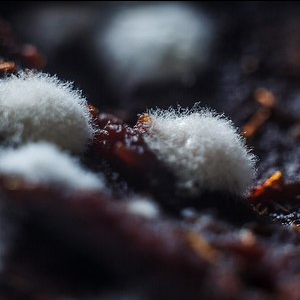Experts of the Samara National Research University named after Academician S.P. Korolev during the experiments revealed an increase in the antibacterial activity of penicillin after exposing the antibiotic to a pulsed magnetic field.
"The purpose of our study is to identify new phenomena or processes when using a pulsed magnetic field in medicine and pharmacology. The results of the experiments were obtained - after the field affected penicillin, its antibacterial activity increased by about 20%," said Ph.D. Irina Belyaeva, Associate Professor of Samara University.
I. Belyaeva, presumes the magnetic field changes the spatial arrangement of the penicillin molecule components, due to this it more accurately affects certain components of the bacterial cell wall and its activity increases. According to scientists, research in this area in the future can help reduce the doses of antibiotics prescribed to patients, which will reduce the drug load on the human body.
A compact magnetic-pulse installation created at the university was used for experiments. Scientists applied a pulsed magnetic field to benzylpenicillin sodium salt in powder and dissolved form. Fields of varying intensity and frequency were applied. So, for example, for experiments with a powdered antibiotic, single magnetic pulses with a voltage from 3 kV to 11 kV were used.
Scientists evaluated how an antibiotic treated with a magnetic field affects the grown E. coli strains. Bacterial culture growth occurred in the thermostat for 18 hours. The antibacterial effect was evaluated by the increase in the Petri dish of the zones of lysis of Escherichia coli compared with exposure to an unirradiated antibiotic. The diameter of the zones of growth inhibition was measured by scientists with an accuracy of 0.1 mm. The research results confirmed the hypothesis of an increase in the effectiveness of penicillin exposed to a magnetic field.
The irradiated antibiotic also underwent laboratory testing for possible toxicity. For toxicological studies in vivo, 80 white mongrel two-months-old mice were taken. Before the experiment, the animals were quarantined for two weeks. During the research, they were provided with round-the-clock free access to drinking bowls and a standard set of natural products (vegetables, grain) with the usual diet of laboratory mice and hamsters. Both the antibiotic treated with the magnetic field and the untreated antibiotic were administered to mice in doses from 100 to 300 mg / kg. Studies have shown that the treated antibiotic does not acquire any additional toxic properties.
For reference
Samara University has been engaged in research in the field of magnetic pulse technology for several decades. At the University Department of Metal Processing, a scientific research laboratory NIL-41 was formed under the guidance of Professor Vladimir Glushchenkov. Special stamping methods are being developed in the laboratory, among them the main place is occupied by magnetic pulse processing of metals (MIOM).
MIOM technology has been widely adopted in aerospace, automotive and other industries. The scientists of the laboratory developed a typical range of equipment and technologies that are of great practical importance.
Samara University manufactures and supplies similar equipment of various modifications for Russian and foreign enterprises, where they are used for assembly of launch vehicle cables, high-precision stamping of aircraft parts, production of pipeline system elements, and welding of billets from aluminum and copper alloys. Recently, Samara engineers and doctors have been working to study the effect of a pulsed magnetic field on living cells. Research is interdisciplinary at the intersection of medicine, biology and physics. Students take an active part in this work.
___________________________
Gluschenkov V.A. , Vasilieva T.I., Purygin P.P. et al. Changes in the antibacterial activity of benzylpenicillin sodium salt under the influence of a pulsed magnetic field of high intensity // Biophysics. - 2019.- T. 64. No. 2. - p. 296-306.
Vasilieva T.I., Belyaeva I.A., Glushchenkov V.A. et al. Magnetic effects of the antibacterial action of irradiated benzylpenicillin sodium salt // Bulletin of the Samara Scientific Center of the Russian Academy of Sciences. - 2018. - T. 20. No. 5-2. - p. 307-316.
Rodenko N.A. The effect of a pulsed magnetic field (IMP) on the antibacterial activity of benzylpenicillin sodium salt // XLV-I Samara Regional Student Scientific Conference. - 2019.-- Issue. 2019. Part 1. - P. 79.
Glushchenkov V.A., Vasilieva T.I., Belyaeva I.A. et al. Effect of a pulsed magnetic field on the antibacterial activity of benzylpenicillin sodium salt // Actual problems of biological physics and chemistry. - 2018. —T. 3. No. 4. - p. 814-817.
Rodenko N.A., Shakirzyanova R.A. Change in oil viscosity under the influence of a pulsed magnetic field // Youth Scientific Conference dedicated to the 20th anniversary of the start of operation of the international space station. - 2018. - Issue. 2018.-- p. 165-166.
Rodenko N.A., Vasilieva T.I., Belyaeva I.A. et al. Investigation of the antibacterial activity of benzylpenicillin sodium salt under the influence of an electromagnetic field of high tension // Abstract of the 23rd International Pushchino School-Conference of Young Scientists "Biology - Science of the 21st Century". - 209. - p. 420-421.
Photo: wikimedia.org
